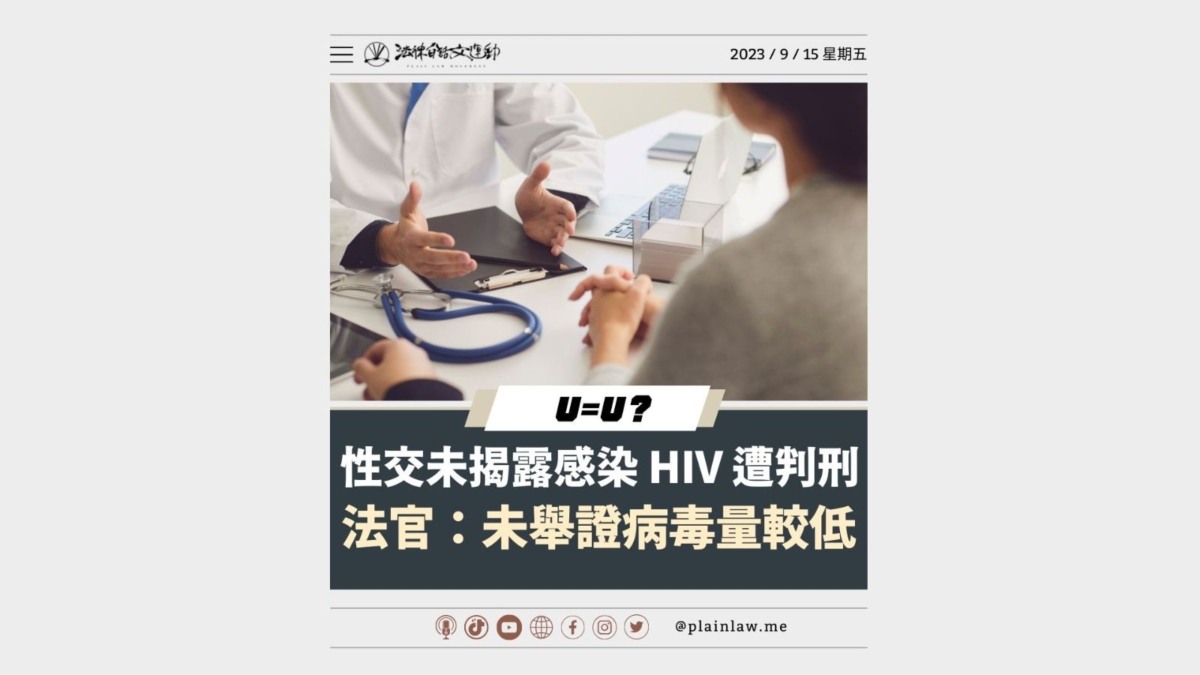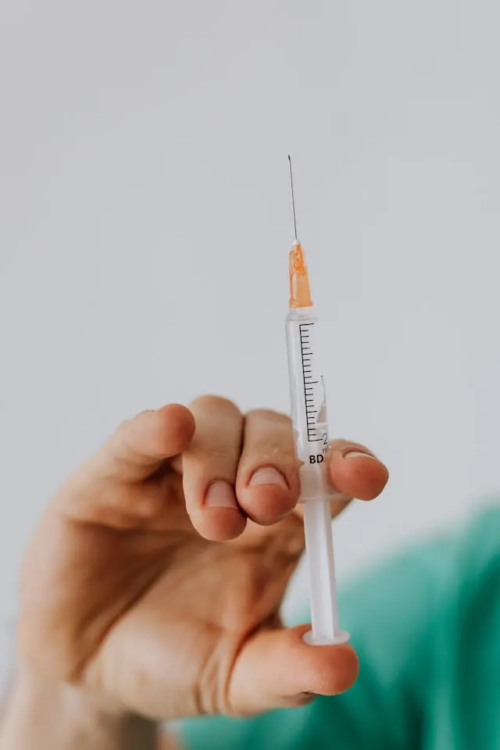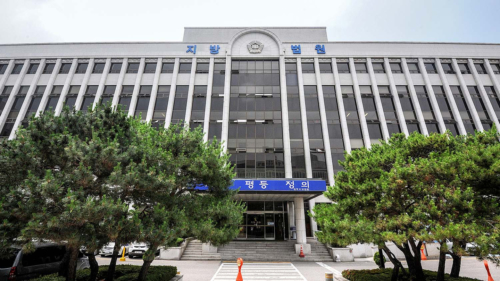
Failure to disclose HIV infection during sexual intercourse sentenced
A Taipei City man named Feng was sentenced to 13 years in prison for engaging in “risky sexual behaviour” with other people and transferring drugs without disclosing his HIV infection. The court found him guilty of concealing his HIV infection and attempting to infect a human being, and sentenced him to 13 years in prison.
The prosecutor later found that eight of the 13 men who filed the complaint had already been infected with HIV before engaging in sexual acts with Feng, and did not disclose it.
All eight men were sentenced by the Taipei District Court to one year of imprisonment from April to May, suspended for four years, and had to pay $100,000 to the public treasury for the offence of concealing HIV infection resulting in attempted human infection.
Do you think that the requirement of concealing the offence of HIV infection resulting in human infection is controversial?
Judge: The defendant failed to produce test information to support the viral load.
The judge pointed out that an HIV-infected person who engages in anal sex with another person without a condom is a “risky sexual behaviour” and has the potential to be infected with HIV.
The judgement also cited a study by the United Nations Programme on AIDS (UNAIDS), which concluded that when the viral load of an HIV-infected person is extremely low or undetectable, there is no risk of infection, which is the “U=U” principle.
The Taiwan AIDS Society pointed out in an article that, according to international standards, a viral load of less than 200 copies/mL that has been maintained for more than six months is consistent with the “U=U” principle, which means that “if the virus is undetectable, there is no risk of transmission”.
The Ministry of Health and Welfare also pointed out that international medical research has shown that after long-term tracking, HIV-infected patients who have been steadily using antiviral medication and whose viral loads have been controlled to be less than 200 copies/mL have not had any cases of sexual transmission of HIV, which is proof that the likelihood of infection is extremely low, and that they are medically sufficient to be considered as non-transmissible.
However, in this case, one of the Defendants claimed that he was not infectious and had not engaged in “risky sexual behaviour”, but tests showed that his viral load far exceeded international standards.
The judge did not accept the defence of the other defendants who each argued that they had received treatment or had an undetectable viral load, but could not provide test information to prove it.
HIV-infected persons are prohibited from engaging in “risky behaviours”, but the standard has changed.
Nowadays, with the advancement of medical technology, HIV-infected people can control the development of the virus and prevent the development of AIDS if they receive medication as soon as possible. Therefore, being infected with HIV is not the same as being a patient with AIDS, but a patient with AIDS must be infected with HIV.
However, according to the Prevention and Control of Human Immunodeficiency Virus Infections and Protection of the Rights of Infected Persons Ordinance, even if an HIV-infected person has not yet contracted the disease, if he/she wants to engage in “dangerous sexual behaviour” with another person, he/she must inform him/her of the fact that he/she is infected with HIV, or he/she faces a prison sentence of 5 to 12 years. In addition, because the law punishes “attempt”, it is still an offence even if the virus is not actually transmitted.
The scope of “dangerous acts” is defined by the Ministry of Health and Welfare in accordance with the World Health Organisation’s regulations.
In the past, the Ministry of Health and Welfare considered “risky sexual behaviour” to be any sexual activity that was assessed to be “likely” to cause HIV infection through direct contact without isolation of mucous membranes or body fluids.
In 2021, the Ministry of Health and Welfare changed the definition of risky sexual behaviour from “likely” to “significant risk of transmission” in accordance with the guidelines of the United Nations Programme on HIV/AIDS (UNAIDS), and explicitly adopted the U=U principle.
In an interview with Law White, Mr Teng Chieh said that in the past, the practice had been to consider that a very low transmissibility still meant that there was a possibility of transmission, and therefore even if the virus could not be detected by taking medication on a regular basis, the person concerned should still be punished, and the U=U criterion had not been adopted.
Deng Jie said that since this case occurred in the old law period, the court still used the “possibility of transmission” to determine dangerous behaviour. However, a defendant was acquitted after filing a virus report, which shows that the court still included the “U=U” principle in its consideration, which marks the convergence of Taiwan’s judicial system with international medical research.
Deng Jie pointed out that due to the relatively advanced medical technology in Taiwan, the viral load of a patient must be less than 20copies/mL in order to be undetectable, which is much lower than the international standard. Therefore, an infected person who is undetectable in Taiwan should not be at a significant risk of transmission.
The sentence is too harsh and unconstitutional.
Dr Lin Sih-hsun of the Department of Infectious Diseases at the Taipei Veterans General Hospital believes that concealing the offence of infecting a person with HIV violates the principle of proportionality.
He pointed out that the penalty for the offence of aggravated assault is also 5 to 12 years, but nowadays AIDS is no longer a disease that causes death if one is infected. A person infected with HIV at the age of 22 has a life expectancy of up to 77 years, which should not be considered as aggravated assault.
Professor Xinru Lin of the Department of Medical Management at Chang Gung University analysed 15 district court judgments and found that the average sentence for 12 of the attempted convictions was 3 years and 5 months, with a median of 2 years and 8 months.
In contrast, the president and chief of internal medicine of Taipei Yan Chai Hospital were sentenced to three years and two years and six months respectively for failing to report the outbreak of SARS during the epidemic, resulting in the deaths of five patients and healthcare workers, which Professor Lin considers to be an imbalance in terms of the length of the sentences.
性交未揭露感染 HIV 遭判刑
台北市馮姓男子因未揭露感染人類免疫缺乏病毒(HIV)而與其他人從事「危險性行為」並轉讓毒品,被法院認定成立隱瞞感染 HIV 致傳染於人未遂等罪,判處 13 年有期徒刑。
事後檢方發現,當年提起告訴的 13 名男子中,有 8 人在與馮男從事性行為前,已經感染 HIV 也未揭露,於是也將他們起訴。
8 名男子均被台北地方法院以隱瞞感染 HIV 致傳染於人未遂罪,判處 1 年 4 月至 1 年 5 月的有期徒刑、緩刑 4 年,必須向公庫支付 10 萬元。
你認為隱瞞感染 HIV 致傳染於人罪的規定是否存在爭議?
法官:被告未提出檢驗資料佐證病毒量
裁判書指出,HIV 感染者與他人進行無套的肛交行為,屬於「危險性行為」,有感染 HIV 的可能性。
裁判書並引用聯合國愛滋病規劃署研究,認為當 HIV 感染者的病毒量極低或無法檢測時,已經無傳染風險,這就是「U=U」原則。
台灣愛滋病學會撰文指出,根據國際標準,病毒量在 200 copies/mL 以下並維持 6 個月以上即符合「U=U」原則,即「測不到病毒就無傳染力」。
衛福部也指出,目前國際醫學研究均顯示,經過長期追蹤,發現穩定使用抗病毒藥物並控制病毒量在 200 copies/mL 以下的 HIV 感染者,沒有透過性行為傳播 HIV 的案例,可證明感染可能性極低,醫學上已足以認定為無傳染力。
然而,在本案中,一名被告聲稱其不具傳染力且未從事「危險性行為」,但檢驗顯示其病毒量遠超過國際標準。
其他被告雖各自辯稱有接受治療或病毒量測不到,但未能提供檢驗資料作為證明,因此法官未接受他們的辯詞。
HIV 感染者被禁止從事「危險性行為」,但標準已有不同
現在醫學技術進步,感染 HIV 的人,如儘早接受用藥,就可控制病毒發展,避免發展為愛滋病(AIDS)。因此感染 HIV 病毒,並不等於 AIDS 患者,但 AIDS 患者,一定是 HIV 感染者。
不過根據《人類免疫缺乏病毒傳染防治及感染者權益保障條例》, HIV 感染者即使未發病,如要與他人從事「危險性行為」,必須將自己感染 HIV 的事實告知他人,否則就會面臨 5 至 12 年有期徒刑。此外,因法條處罰「未遂犯」,即使未真正傳播病毒,仍屬犯罪。
「危險性行為」的範圍是由衛福部根據世界衛生組織的相關規定來訂定的。
過去衛福部認為,未經隔絕器官黏膜或體液而直接接觸,醫學上評估「可能」造成人類免疫缺乏病毒感染之性行為,均屬「危險性行為」。
在 2021 年,衛福部依照聯合國愛滋病規劃署的指引,將危險性行為的定義從「可能」改為「有重大傳染風險」,並明確採納 U=U 原則。
鄧傑律師受法白訪問時表示,過往實務曾認為,傳染力極低仍代表有傳染可能性,因此認為即使定期服藥測不到病毒,仍應受罰,並未採用 U=U 判斷標準。
鄧傑律師表示,本案因發生在舊法時期,法院仍以「傳染可能性」來認定危險性行為,但有被告提出病毒報告而獲判無罪,可見法院仍納入考量「U=U」原則,這標誌著台灣司法與國際醫學研究的接軌。
鄧傑律師指出,因台灣醫學技術相對進步,病患病毒量須低於 20copies/mL 才測不到,遠低於國際標準,因此感染者如在台灣測不到病毒,應該不會有傳染重大風險的情形。
刑期過重,有違憲疑慮
台北榮民總醫院感染科林錫勳醫師認為,隱瞞感染 HIV 致傳染於人罪的規定已經違反比例原則。
他指出,重傷害罪的刑度也是 5 年至 12 年,但現在愛滋已經不是一個被感染就會死亡的疾病,一個人在 22 歲時感染愛滋,預期壽命可達 77 歲,不應屬於重傷害。
長庚大學醫務管理學系林欣柔教授則分析 15 件地方法院判決,發現其中 12 件未遂犯有罪判決其平均刑期為 3 年 5 月,中位數為 2 年 8 月。
相比之下,台北市仁濟醫院院長及內科主任在 SARS 流行期間,未即時通報疫情,造成 5 名病人及醫護人員死亡,卻分別被判 3 年、2 年 6 個月,林教授認為刑期輕重失衡。




